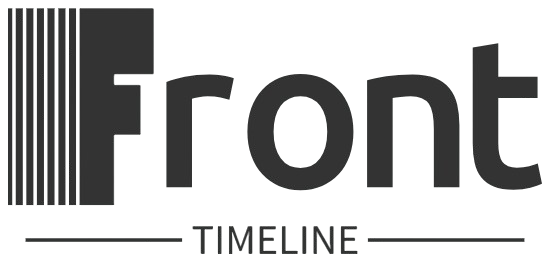The Role of PPC in Domain Monetization
Have you ever wondered how websites make money? What is the secret to turning a simple domain name into a lucrative online business? The answer lies in Pay-Per-Click (PPC) advertising, a powerful tool that plays a crucial role in domain monetization. In this comprehensive guide, we will delve into the world of PPC and explore its impact on domain monetization. Join us as we uncover the strategies, benefits, and challenges of using PPC to monetize domains.
The Basics of PPC Advertising

Before we can understand the role of PPC in domain monetization, it’s essential to grasp the basics of PPC advertising. PPC is a model of online advertising in which advertisers pay a fee each time their ad is clicked. It is a cost-effective way for businesses to reach their target audience and drive traffic to their websites. When a user searches for a specific keyword related to the advertiser’s business, the ad is displayed at the top of the search results. If the user clicks on the ad, the advertiser pays a predetermined amount to the search engine.
PPC advertising platforms, such as Google AdWords and Bing Ads, allow advertisers to create targeted ads based on keywords, demographics, and other criteria. Advertisers bid on keywords relevant to their business, and the ad placement is determined by a combination of bid amount and ad quality score. PPC ads can appear on search engine results pages, websites, and social media platforms, making it a versatile and effective marketing tool.
PPC Strategies for Domain Monetization

When it comes to monetizing domains, PPC can be a game-changer. By leveraging PPC advertising, domain owners can generate revenue by displaying targeted ads on their websites. Here are some key strategies for effectively using PPC in domain monetization:
Keyword Research
Keyword research is the foundation of a successful PPC campaign. By identifying high-volume, relevant keywords related to your domain’s niche, you can attract the right audience and maximize your earnings. Use keyword research tools like Google Keyword Planner and SEMrush to discover profitable keywords with low competition.
Ad Placement
Strategic ad placement is crucial for maximizing PPC revenue. Experiment with different ad formats, sizes, and placements on your website to determine which ones perform best. Consider placing ads above the fold or in prominent locations where they are more likely to be noticed by visitors.
Quality Score Optimization
Quality score is a metric used by PPC platforms to evaluate the relevance and quality of your ads and landing pages. By optimizing your ads, keywords, and landing pages for quality score, you can improve your ad ranking and reduce your cost per click. Focus on creating compelling ad copy, relevant landing pages, and a seamless user experience to boost your quality score.
Ad Testing and Optimization
Continuous testing and optimization are essential for maximizing the performance of your PPC ads. A/B test different ad creatives, headlines, and calls to action to identify which variations drive the most clicks and conversions. Monitor your ad performance regularly and make data-driven decisions to optimize your campaigns for better results.
Benefits of Using PPC for Domain Monetization

PPC advertising offers a wide range of benefits for domain owners looking to monetize their websites. Here are some of the key advantages of using PPC for domain monetization:
Monetization Opportunities
PPC provides domain owners with a simple and effective way to monetize their websites. By displaying targeted ads on their domains, owners can earn revenue every time a visitor clicks on an ad. This passive income stream can be a valuable source of revenue for domain owners looking to monetize their online assets.
Targeted Advertising
PPC allows advertisers to target specific audiences based on demographics, interests, and online behavior. By displaying relevant ads to the right audience, domain owners can increase the likelihood of clicks and conversions. Targeted advertising helps maximize the effectiveness of PPC campaigns and drive higher ROI.
Scalability and Flexibility
PPC advertising is highly scalable and flexible, allowing advertisers to adjust their campaigns in real-time. Domain owners can easily increase or decrease their ad spend, target new keywords, or modify ad copy to improve performance. This flexibility enables domain owners to adapt to changing market conditions and optimize their campaigns for better results.
Measurable Results
PPC provides detailed metrics and analytics that allow domain owners to track the performance of their campaigns in real-time. By monitoring key performance indicators such as click-through rate, conversion rate, and cost per click, owners can identify areas for improvement and make data-driven decisions to optimize their campaigns. The ability to measure results accurately makes PPC an invaluable tool for domain monetization.
Challenges and Considerations in PPC Domain Monetization

While PPC advertising offers numerous benefits for domain monetization, there are also challenges and considerations that domain owners need to be aware of. Here are some of the key challenges in PPC domain monetization:
Competition
The online advertising landscape is highly competitive, with millions of businesses vying for ad placement on search engines and websites. Domain owners may face stiff competition from other advertisers targeting the same keywords and audience. To stand out in a crowded market, owners need to develop unique selling propositions, compelling ad copy, and targeted campaigns that resonate with their target audience.
Click Fraud
Click fraud is a common issue in PPC advertising, where individuals or bots click on ads with no intention of making a purchase. Click fraud can deplete ad budgets, reduce ROI, and damage the credibility of PPC campaigns. Domain owners need to monitor their campaigns closely for signs of click fraud and take proactive measures to prevent fraudulent clicks.
Ad Blocking
Ad blocking software has become increasingly popular among internet users, posing a challenge for domain owners relying on PPC advertising. Ad blockers prevent ads from being displayed on websites, reducing the visibility and effectiveness of PPC campaigns. Domain owners need to find creative ways to bypass ad blockers and deliver targeted ads to their audience effectively.
Ad Relevance
Ensuring the relevance of ads to the content of the domain is essential for maximizing the performance of PPC campaigns. Irrelevant or poorly targeted ads can drive visitors away from the website and decrease the likelihood of clicks and conversions. Domain owners need to continuously optimize their ad copy, keywords, and landing pages to ensure the relevance and effectiveness of their PPC ads.
Common Misconceptions about PPC Domain Monetization
Despite the widespread use of PPC advertising for domain monetization, there are several common misconceptions that persist among domain owners. Let’s debunk some of the most common myths about PPC domain monetization:
PPC is Too Expensive
One of the most common misconceptions about PPC advertising is that it is too expensive for small businesses and domain owners. While PPC can require a significant investment, it can also deliver a high return on investment if managed effectively. By targeting the right keywords, optimizing ad performance, and monitoring campaign results, domain owners can maximize the value of their PPC campaigns and generate a positive ROI.
PPC Doesn’t Work for Every Niche
Another misconception is that PPC advertising is only effective for certain niches or industries. In reality, PPC can be a valuable marketing tool for a wide range of niches, from e-commerce to professional services to entertainment. By conducting thorough keyword research, targeting the right audience, and optimizing ad performance, domain owners can use PPC to drive traffic and conversions in any niche.
PPC is Set-and-Forget
Some domain owners believe that once they set up a PPC campaign, they can sit back and watch the money roll in. In truth, PPC advertising requires ongoing monitoring, optimization, and testing to achieve optimal results. By continuously refining ad copy, targeting new keywords, and analyzing campaign data, domain owners can improve the performance of their PPC campaigns and maximize their revenue potential.
Conclusion
To wrap things up, PPC advertising plays a significant role in domain monetization, offering domain owners a powerful tool for generating revenue and reaching their target audience. By leveraging PPC strategies such as keyword research, ad placement, and quality score optimization, domain owners can maximize the effectiveness of their campaigns and drive higher ROI. While there are challenges and misconceptions to navigate, PPC remains a valuable and versatile marketing channel for domain owners looking to monetize their online assets. As the digital landscape continues to evolve, PPC will undoubtedly remain a cornerstone of domain monetization strategies for years to come.




